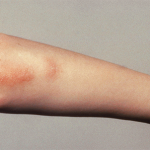 ACR CONVERGENCE 2021—For children with juvenile idiopathic arthritis (JIA), effective treatment to achieve rapid disease control is the key to improving long-term outcomes into adulthood. This is one primary take-home message from a talk given by Mara L. Becker, MD, MSCE, professor of pediatrics and vice chair for faculty, Duke University Medical Center, Durham, N.C., during a session titled Management of Adults with JIA: Uveitis, MAS & More.
ACR CONVERGENCE 2021—For children with juvenile idiopathic arthritis (JIA), effective treatment to achieve rapid disease control is the key to improving long-term outcomes into adulthood. This is one primary take-home message from a talk given by Mara L. Becker, MD, MSCE, professor of pediatrics and vice chair for faculty, Duke University Medical Center, Durham, N.C., during a session titled Management of Adults with JIA: Uveitis, MAS & More.
In her presentation, Dr. Becker focused on two long-term complications of JIA that could have an impact impact on the care of these patients into adulthood and underscore the need for effective, early disease control: JIA-associated uveitis and macrophage activation syndrome (MAS).
“It is not really appropriate to take the traditional approach to escalate therapy slowly in children anymore,” she said.
JIA-Associated Uveitis
Dr. Becker opened by discussing JIA-associated uveitis, citing statistics that indicate this complication may persist into adulthood in 30–63% of patients, with varying morbidity.
Because significant sight-threatening morbidity is possible into adulthood, Dr. Becker underscored the need for rheumatologists to collaborate with ophthalmologists to screen frequently for uveitis and treat with systemic therapies when appropriate—that is when topical therapy is ineffective in controlling inflammation or can’t be tapered within three months.
Evidence to support this approach comes from general treatment guidelines Dr. Becker cited that also specify which systemic treatments are recommended, including recommendations for the use of disease-modifying anti-rheumatic drugs (DMARDs) and biologics.1 Overall, the evidence shows early DMARD treatment is associated with the best long-term outcomes. Biologics also improve outcomes, but she emphasized the that long-term data are still accumulating.
When treating severe, active, chronic anterior uveitis with sight-threatening complications, the guidelines recommend starting methotrexate and a monoclonal antibody tumor necrosis factor inhibitor (TNFi) immediately over methotrexate alone. If response to one monoclonal TNFi is inadequate at the standard JIA dose, the guidelines recommend escalating the dose or frequency of administration rather than switching to another monocolonal antibody TNFi.
“If a TNFi is instituted or required, remember that higher doses are often needed,” Dr. Becker emphasized.
Citing data from a study conducted to evaluate the different types of TNFi’s used to treat chronic uveitis in children, she said adalimumab appeared superior to infliximab and etanercept in a pooled analysis.2 However, she noted the majority of infliximab studies included in this meta-analysis used lower doses, and observational data have shown that infliximab given in much higher doses (up to 20 mg/kg) may be needed to control severe anterior uveitis.3


